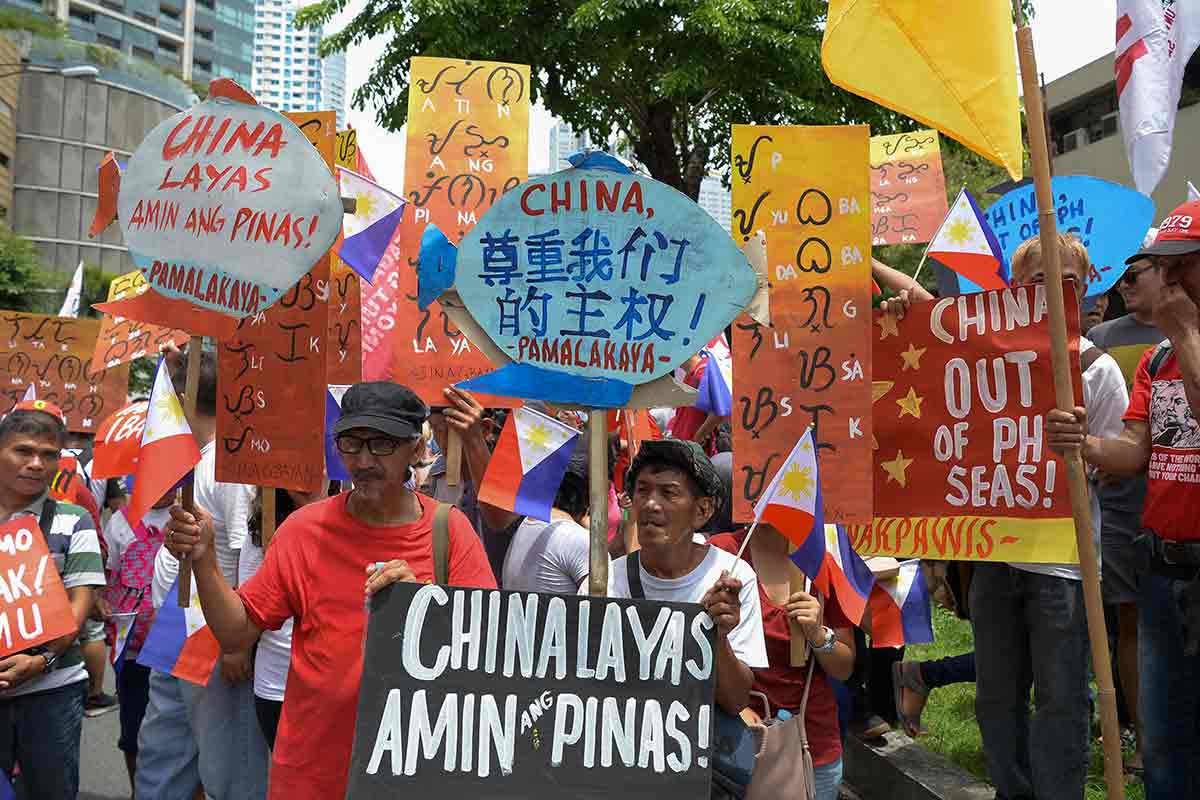The Philippines has filed a diplomatic protest against China after it said the crew of a Chinese fishing boat sank a Filipino vessel carrying 22 fishermen in the South China Sea (SCS), potentially inflaming a dispute calmed by warm ties between the nations’ leaders.
Foreign Affairs Secretary Teodoro Locsin said on his personal Twitter account Thursday he had “fired off a diplomatic protest yesterday” on the incident, which he said in another tweet he’d call a "hit and run."
President Rodrigo Duterte’s spokesman, Salvador Panelo, described the act of China’s fishing vessel on 9 June as uncivilized, outrageous and barbaric in what could be the most serious flare-up between Manila and Beijing in three years. Panelo also urged China to investigate and sanction the crew members, supporting the call of Defense Secretary Delfin Lorenzana, who said diplomatic steps should be taken.
“The captain and the crew of the Chinese vessel should not have left the injured party without any assistance. Such act of desertion is inhuman,” Panelo said in a statement, adding the Chinese crew violated international protocols that require them to assist a vessel in distress.
Despite the tough talk from multiple officials, Lorenzana appeared to soften his stance Thursday, saying the government had yet to determine if the vessel was indeed from China.
Ordinary accident
Chinese Foreign Ministry spokesman Geng Shuang, speaking at a regular briefing in Beijing, referred to it as an ordinary maritime traffic accident that can be dealt with by proper channels. He blamed the media for hyping up the issue.
The United States (US) urged China to refrain from coercion and intimidation in the SCS.
"China’s efforts to assert its expansive and unlawful maritime claims – including by using coercion and intimidation against other claimants and users of the SCS, undermines the stability of the region," a State Department spokesman said by email.
At a briefing on Thursday, Panelo said these incidents could affect ties between China and the Philippines and that the government would consider it an act of aggression if the collision was intentional. Duterte may decide to minimise ties or even opt for a more severe response if the issue escalates, his spokesman said.
"Beijing will have to cope with the chorus of outcry from the Philippine public," said Collin Koh, a maritime security research fellow at the S. Rajaratnam School of International Studies in Singapore. "The pressure from this incident looks set to heap upon the Duterte administration to seek accountability from Beijing."
Since Duterte’s election in mid-2016, the Philippines has pivoted toward China, mending ties that deteriorated from 2012 when the Philippine Navy apprehended a group of Chinese fishing frigates at the Scarborough Shoal, a reef approximately 120 nautical miles west of the Philippine island of Luzon.
The dispute led the Philippines, then under former President Benigno Aquino, to file a case before an international tribunal, which in July 2016 ruled in its favour and rejected China’s claims. That didn’t stop Beijing from reclaiming portions of the sea and building a defense base in the area.
“The critics of Duterte’s China policy are going to seize on this unfortunate incident to cast a shadow of doubt over his approach to the South China Sea,” said Richard Heydarian, a fellow at the National Chengchi University in Taiwan and author of a book on the president. “This is definitely a soft power disaster for China and could possibly sink Duterte’s ability to convince the people of his approach to Beijing.”
Intentional act
Lorenzana had condemned the crew of the Chinese fishing vessel for abandoning the 22 distressed Filipinos aboard FB Gimber 1, who were later rescued by a Vietnamese fishing boat and a Philippine Navy ship.
The incident took place near Reed Bank, an area claimed by both Manila and Beijing where there’s a pending oil exploration plan by Philippines company PXP Energy Corp. PXP fell for a third day.
The Chinese crew members’ act of leaving the area as the Philippine boat was sinking indicates they hit the vessel intentionally, said Lieutenant Colonel Stephen Penetrante, spokesman for the military unit in charge of the disputed waters. “It is far from accidental, because if it is, they should have stopped and rescued our fishermen,” he said on Wednesday. A statement from the same military unit on Thursday however said the Chinese vessel “accidentally collided” with the Philippine boat.
China asserts control over more than 80 percent of the South China Sea, a key shipping route also claimed by Brunei, Indonesia, Malaysia, the Philippines, Taiwan and Vietnam. - Bloomberg
